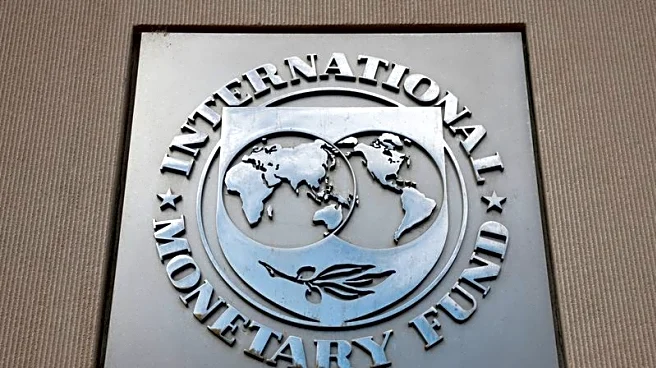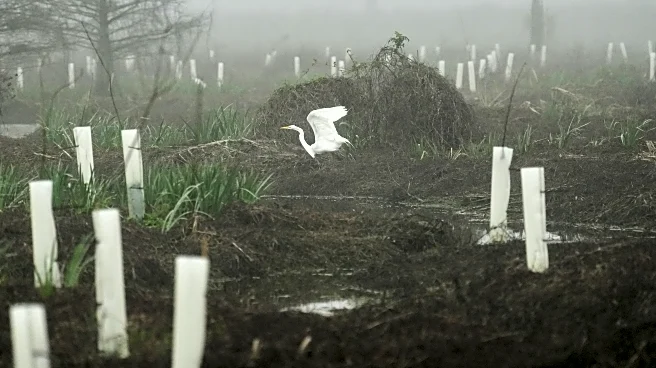What's Happening?
Divers have discovered human remains in the Chosei coal mine in Ube, Yamaguchi Prefecture, Japan, where a tunnel collapse during World War II resulted in the deaths of 183 miners. The remains, including a skull and several bones, were found during an underwater investigation led by a citizens group. The group, Chosei Tanko no Mizuhijo wo Rekishi ni Kizamu Kai, has been advocating for the Japanese government to assist in recovering and identifying the remains. Despite the discovery, the government has been reluctant to provide support, citing safety concerns and legal limitations. The mine was sealed shortly after the accident in 1942, and the site was largely forgotten as the war intensified.
Why It's Important?
The discovery of human remains in the Chosei coal mine highlights unresolved historical issues between Japan and South Korea, as many of the miners were believed to be Korean laborers. The reluctance of the Japanese government to assist in the recovery efforts may strain diplomatic relations and affect public sentiment. The situation underscores the broader challenges of addressing wartime legacies and the responsibilities of governments in providing closure to affected families. The citizens group's efforts have brought renewed attention to the disaster, potentially influencing public policy and historical accountability.
What's Next?
The citizens group and bereaved families are expected to continue pressuring the Japanese government to take action. The discovery of remains may lead to increased calls for government involvement, potentially prompting legislative or diplomatic discussions. The Ministry of Health, Labor and Welfare may face scrutiny over its handling of the situation, and there could be further investigations into the legal framework governing the recovery of wartime remains. The situation may also attract international attention, particularly from South Korea, given the historical context.
Beyond the Headlines
The ethical implications of the government's stance on the recovery of wartime remains are significant. The refusal to assist may be seen as neglecting historical injustices and failing to honor the memory of those who perished. The situation raises questions about the role of governments in addressing past atrocities and the importance of reconciliation efforts. The discovery could also lead to broader discussions on the preservation of historical sites and the responsibilities of nations in acknowledging and rectifying historical wrongs.











